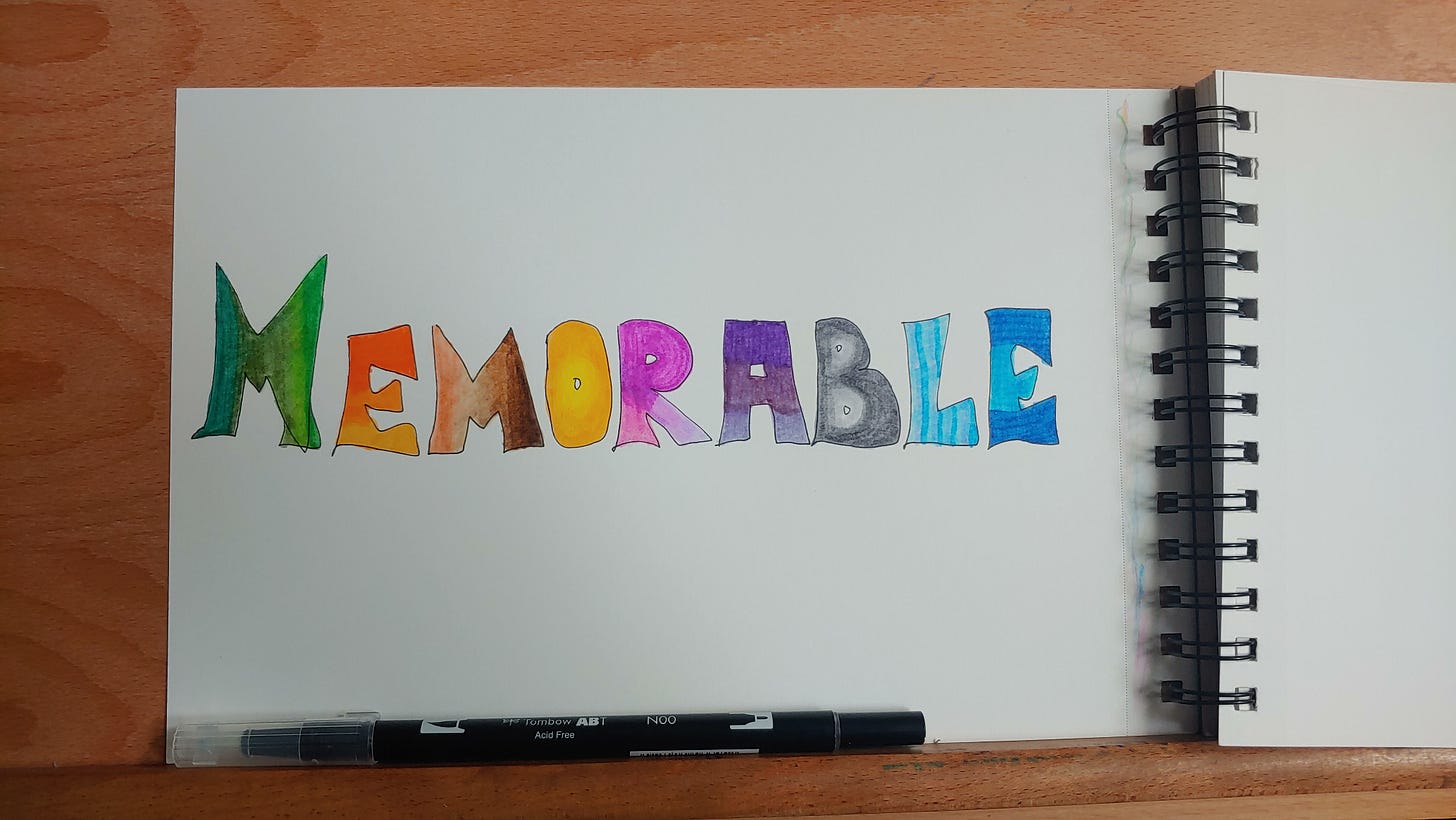Forgettable
“Lynne - it’s so nice to be connected!”
They’d be friendly, innocuous words to receive in an email a few days ago, if this colleague and I hadn’t met and worked together multiple times over the course of the last 6-7 years. When I first got the email, I was angry. This is a step in the right direction for me, as anger is an emotion I have, historically, struggled to let myself feel. I didn’t realize until meditation this morning, though, how much hurt and sadness lay underneath.
And underneath that? Patterning.
By all means, the New York theater world is not the only industry where people forget one another, and cause harm in so doing, but I’ve found it to be one where it happens frequently enough to feel endemic. We come by it honestly: we meet so many new people so regularly, are pulled in so many different directions, and often are so self-focused - constantly reminded by the parlance surrounding our jobs that we are our own product, PR, and small business - that being fully present and mindful with each new human is challenging.
What’s interesting is it is also an industry that fundamentally requires being “in mind” in order to work and receive (or even just hear about) opportunities. As actors and even as directors and producers we are told in training programs to stay in people’s minds, send emails, connect on social media, go to readings, be seen in the community… We are all shouting at once to be remembered, forgetting, perhaps, to do the remembering.
What I’m curious about (in my finer moments, when I’m not busy feeling sad or angry) is that I have chosen multiple industries and activities where this is the case: not just acting but visual art, writing, content development, television hosting, even academia require being remembered when positions, grants, residencies, shows, and opportunities arise, and often we are left feeling forgotten and left out. Additionally, when I look at past romantic relationships, I see a history of men forgetting - forgetting to respond, forgetting to show up, forgetting we had plans…
It leads me to ask, as nonjudgmentally as I possibly can (easier said than done), does something within me want to be forgotten? If I am drawn to both work and partners where the risk of this is high, what am I trying to work through in the reiteration?
The Old English etymology of “Forget” breaks down to “For-” a prefix which can mean opposite-of, and “Gietan,” meaning “to grasp” or “to obtain.” There is a closed-handedness and a captivity that lives within the word “Gietan,” which I know I have always resisted, privileging my independence. Is to be “Forgotten” in some unconscious sense, to remain free and un-grasped? Perhaps it means to be boundaried from the potential false intimacies of remembrance.
It is a conflicted freedom, of course, because as much as I want to remain untethered, I - like most humans - ache to feel seen and heard, tended and held, and performing is something that at one time gave that to me, if in fits and starts. The question becomes, having chosen these professional fields, is there a way to work with this unconscious patterning and be less harmed by the forgetting? Can we hold ourselves lovingly in our own memories when others can not? Can that be enough?
It is worth noting, the opposite of being forgotten, being remembered, does not connotate captivity. The Latin etymology breaks down to “Re,” the prefix signifying “again” and Memorari - to be mindful of. To be mindful of again. That, versus being grasped, sounds lovely.
Perhaps what this experience of pain offers me - greater than any examination of patterns and tendencies - is the recognition that I, too, have inevitably participated in harmful acts of forgetting. If I have ever made you feel forgotten, unseen, and unremembered, I am sorry, and to anyone I may harm in the future (especially as learning names gets harder and harder in my 40s…), I am sorry.
May I be mindful of you again.




